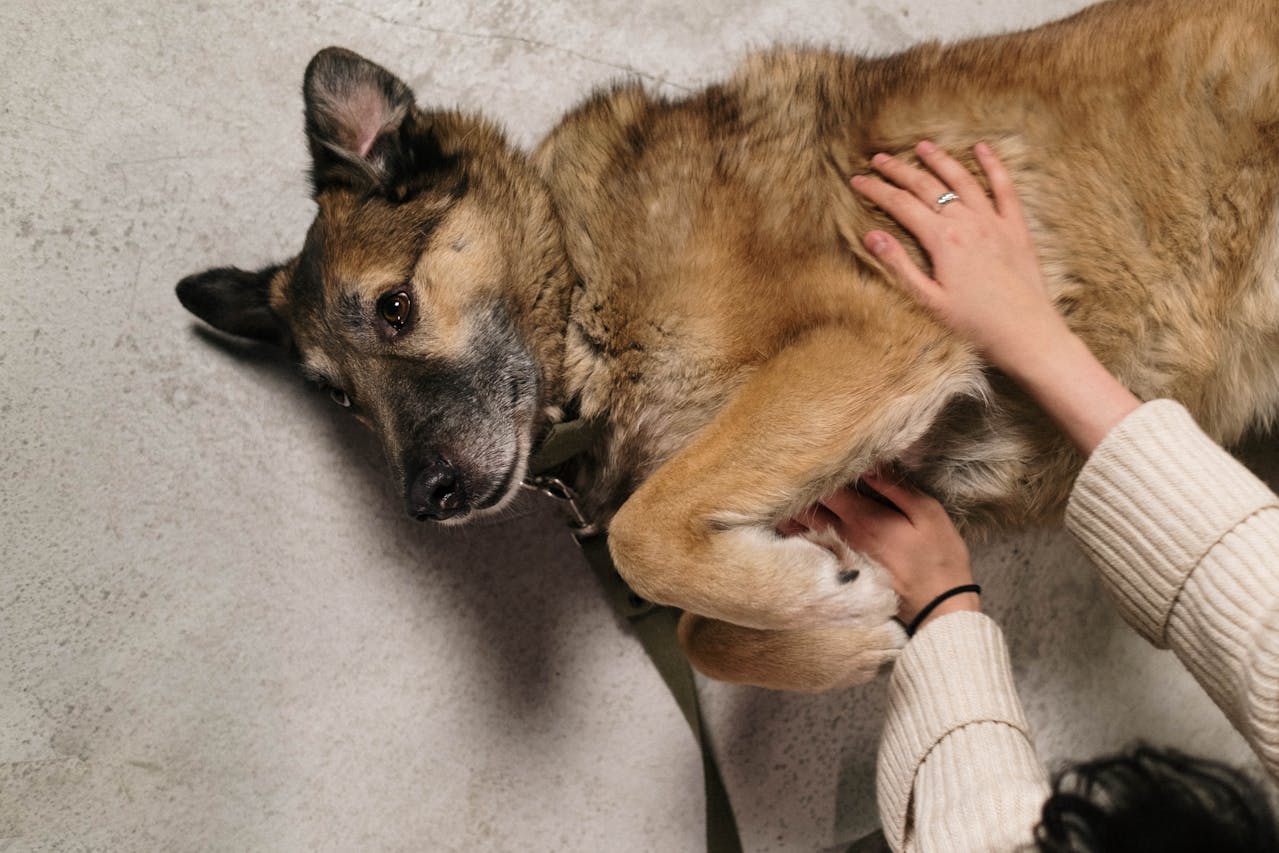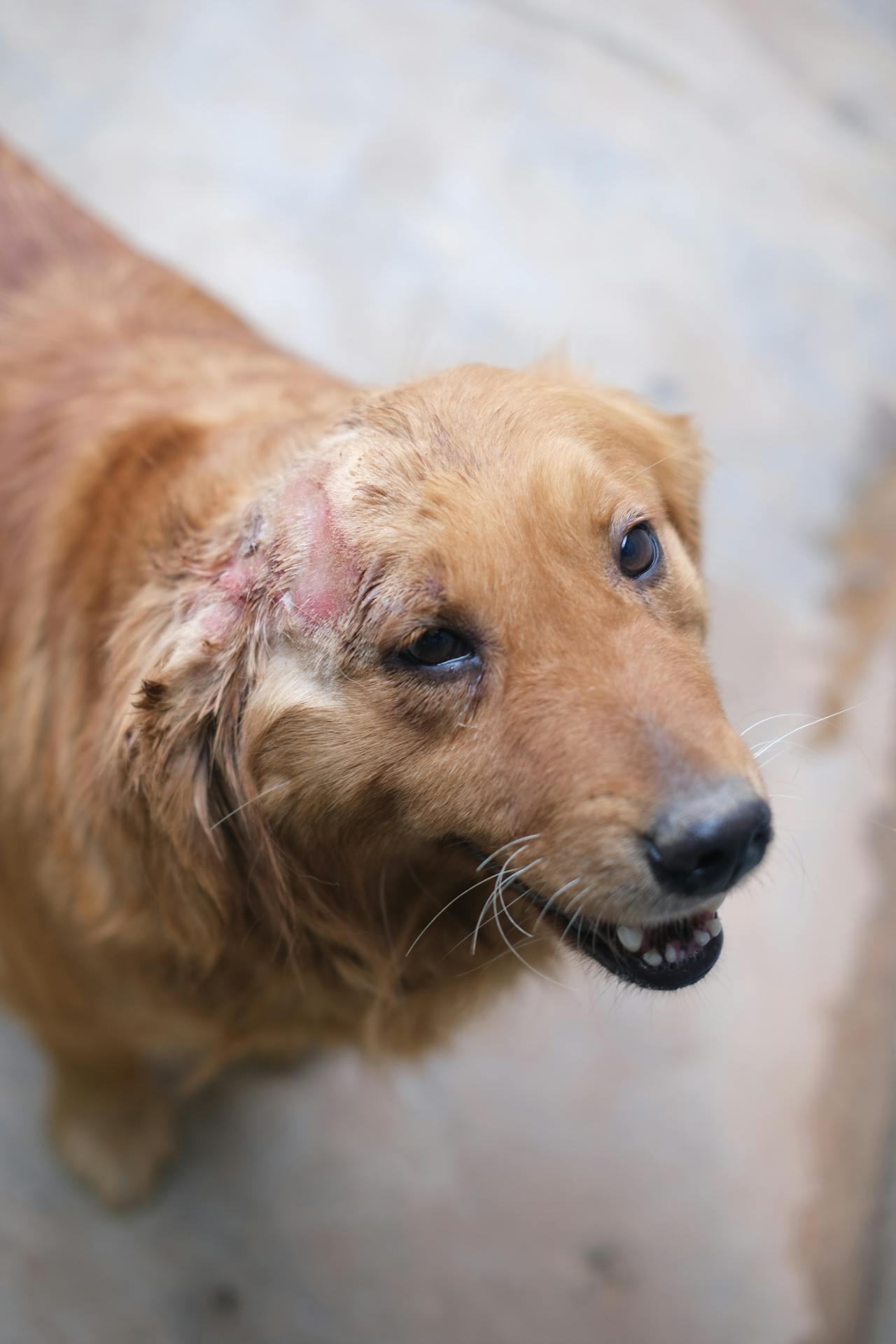Dog Sunburns

While your dog's furry coat offers protection from various elements, it provides little defense against the sun's potent UVB and UVA rays. To ensure your pet's well-being during the summer months, it's crucial to take proactive steps to shield your dog from the potential dangers of sunburn. By understanding the risks, recognizing the signs of sunburn, and implementing preventive measures, you can spare your furry friend from unnecessary trips to the veterinary emergency room.
At-Risk Dog Breeds
Just as fair-skinned and light-haired humans are more susceptible to the sun's harsh rays, dogs with light-colored or white fur and those with minimal or no fur are most likely to experience sunburn. Breeds with thin fur coats, such as pitbulls, Dalmatians, boxers, Weimaraners, greyhounds, and Chinese crested dogs, fall into the high-risk category. However, it's important to note that even dogs with thick, dark coats are not exempt from sunburn.
High-Risk Areas for Sunburn
Certain areas on a dog's body are more susceptible to sunburn, especially in at-risk breeds. The nose, tips of the ears, belly, the tip of the tail, and, depending on the breed, the eyelids and the area surrounding the mouth are the most vulnerable. Protecting these areas is crucial to safeguarding your pet from sunburn.
Symptoms of Dog Sunburn
The primary indicator of sunburn in dogs is redness on their skin, accompanied by skin tenderness upon touch. Additional signs of sunburn in dogs include dry, cracked, or curled edges of the ears, hair loss, skin ulcers, skin infections, and the potential development of skin cancer, particularly malignant melanoma, which may manifest as abnormal tumors.
Preventing Dog Sunburn
As the FDA does not currently evaluate sunscreen use for pets, you must consult your dog's veterinarian about pet-safe sunscreens. Not all sunscreens are suitable for pets, and specific ingredients, like zinc oxide, which is effective for humans, can be toxic to dogs, potentially leading to severe anemia and life-threatening consequences. Moreover, some pet-safe sunscreens are not recommended for cats, as those containing salicylates (acetylsalicylic acid) are toxic to felines.
Spray sunscreens should be avoided, as they can inadvertently reach your dog's eyes or be inhaled, causing irritation and potential harm. Look for a sunscreen free of zinc oxide and with minimal or no octisalate (another type of salicylate). Using sunscreen on your pet with professional guidance from a veterinarian or a veterinary-specialty hotline, such as the Pet Poison Helpline, is paramount.
UV- and UPF-protective clothing designed for dogs can be a safe and practical solution to shield high-risk canines outdoors. However, it's essential to remain vigilant in protecting your dog's ears, nose, tail, belly, and exposed skin near the hind legs.
If you plan on spending time outdoors with your dog, consider providing ample shade using options like a tent, a beach umbrella, or an E-Z Up. These can be utilized in your yard, at the park, or on the beach, offering shelter for you and your pet.
If you suspect your dog has experienced sunburn, seek immediate medical attention from your veterinarian. Early intervention is essential to ensuring your furry companion's well-being.
Top 5 Dog Sunscreens for Ultimate Protection
1. Epi-Pet Sun Protector Spray
-
Epi-Pet's sun protector spray boasts an SPF 30, effectively shielding your furry friend from UVA and UVB rays.
-
It is the only FDA-approved pet sunscreen, ensuring your dog's safety during outdoor activities.
-
With its easy-to-use aerosol spray and non-greasy formula, applying this sunscreen is a breeze, leaving your dog's fur with a delightful vanilla scent.
-
It is highly water-resistant and provides lasting protection even during swimming, but remember to reapply every two to four hours or every 80 minutes when in water.
Note: This sunscreen is safe for dogs and horses but should not be used on cats.
2. Emmy’s Sun Skin Protector Dog Spray
-
Emmy’s sunscreen features natural, non-toxic ingredients like coconut oil and shea butter, offering an SPF of 30.
-
Though not an aerosol spray, it is convenient to apply with its regular spray bottle.
-
Apply generously to your dog's entire body, with extra attention to the belly and feet, and use your hands for the face area.
-
Apply 15 minutes before sun exposure and reapply every 30 to 60 minutes.
3. Warren London Dog Sunscreen Spray
-
Warren London stands out with its inclusion of aloe vera, providing non-toxic, non-oily sun protection that also moisturizes your dog's skin.
-
This convenient spray is residue-free and particularly effective in safeguarding sensitive areas.
-
It offers long-lasting protection for your dog's outdoor adventures.
4. My Dog Nose It Sun Protection Balm
-
My Dog Nose It offers an alternative with its creamy balm, perfect for protecting your dog's nose, ears, and stomach from the sun.
-
Made from natural ingredients like carnauba wax and coconut oil, it helps moisturize and heal, preventing sunburn and cracking.
-
Also useful for soothing sun-exposed areas.
5. Petkin Doggy Sun Stick
-
The Petkin Doggy Sun Stick features an SPF of 15 and a gentle, non-greasy formula for easy application.
-
Apply to your dog's nose, ears, muzzle, and any areas with pink skin.
-
Its compact size makes it convenient to carry wherever you and your dog go.
-
Remember to reapply every two hours and consult your vet before using it on puppies under six months of age.
Be sure to prioritize your furry companion's well-being by choosing the best sun protection for sunny days and outdoor adventures!
Get insurance plans with wide-ranging coverage options













